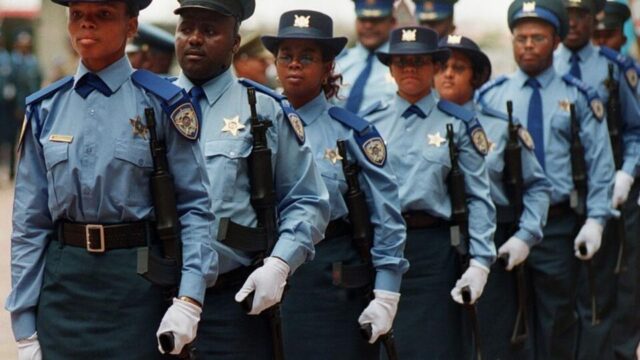The Police and Prisons Civil Rights Union has called for South Africa’s traffic police to be nationalised, citing severe organisational challenges and poor working conditions that are hindering their ability to effectively police the nation’s roads.
THE POLICE and Prisons Civil Rights Union (Popcru) has called for South Africa’s traffic police to be nationalised, citing severe organisational challenges and poor working conditions that are hindering their ability to effectively police the nation’s roads.
The president of Popcru, Thulani Ngwenya, highlighted the disorganisation within traffic departments across various provinces, which he says prevents traffic officers from adopting a strategic and co-ordinated approach to road safety.
This lack of organisation is not only limiting their efficiency, but also compromising safety on South African roads, he said.
A key issue identified by Popcru is the fragmentation of traffic police across provinces, leading to inconsistencies in command structures, uniforms and shift systems.
“For example, traffic police in Mpumalanga are split between the Department of Public Works and the Department of Transport. Northern Cape traffic officers are located under the Department of Safety and Liaison, Gauteng traffic officers under Community Safety, and Western Cape traffic police under the new Department of Monitoring,” Ngwenya said.
This fragmentation is also evident in the varying uniforms and shift systems across provinces.
To address these challenges, Popcru has proposed the nationalisation of traffic police, suggesting that all officers be placed under the national Department of Transport.
He believes this move would standardise uniforms, insignia, rank displays and shift systems across the country, ensuring a more unified and effective approach to traffic policing.
Another significant concern is the disparity in remuneration and benefits for traffic officers in different provinces, which has led to personnel shortages in some areas.
Popcru advocates for a uniform approach to remuneration and benefits across all provinces to prevent traffic officers from relocating for better packages.
The union also pointed out the dire shortage of personnel in the traffic sector, exacerbated by government austerity measures and a lack of recruitment drives. This shortage often results in traffic officers being dispatched alone, which compromises their safety.
Popcru has urged the government to conduct studies to review international benchmarks for officer-to-population ratios and to employ more traffic police to fill ongoing vacancies.
Furthermore, Popcru criticised the current retirement age of 60 for traffic officers, as opposed to the general retirement age of 65 under the Public Service Act of 1994.
They propose that traffic officials should be appointed under the National Road Traffic Act 93 of 1996 to standardise conditions of service.
“Alarmingly, traffic officials also have no hopes of promotion and upward mobility. As they are employed under the Public Service Act, provinces rely on PSCBC Resolution 3 of 2009 and their pay levels and progression are capped. Instead, they need a promotion policy that is in line with that of the South African Police Service and Department of Correctional Services, which considers years of service, relevant qualifications and performance for career and salary progression,” Ngwenya said.
The union also highlighted a lack of necessary equipment and training, including firearms and continuous firearm training.
“Next, despite the dangerous nature of their profession, there are no death grants for traffic police in many provinces across the country, even as they work tirelessly to safeguard travellers on our roads, often performing dangerous and uncertain work.
“To protect and provide for their families should the worst happen, a death grant benefit of R250,000 should be instated immediately across all provinces in honour of their sacrifice. Moreover, traffic police need to have their danger allowance increased to R1,500 as a special dispensation,” Ngwenya added.
The union said that traffic police play a crucial role in protecting motorists and upholding traffic laws, and their working conditions need urgent attention to ensure road safety in South Africa.







